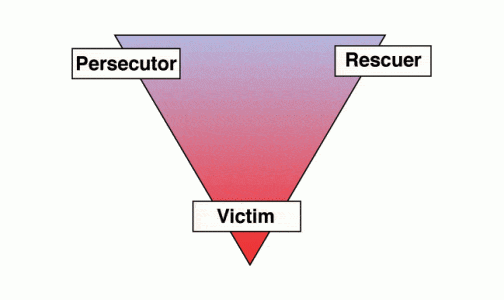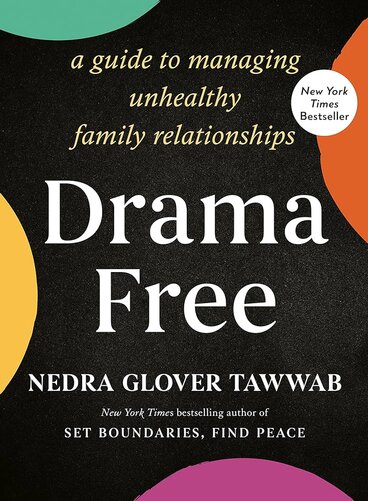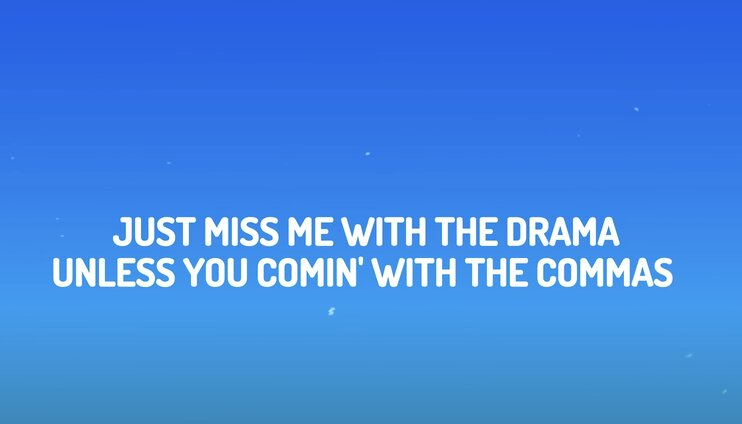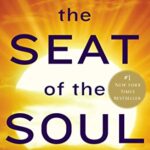‘Good fences make good neighbors.’ – Robert Frost.
We teach people how to treat us, knowingly or unknowingly. We allow people to treat us unfairly because they are our childhood friends, family members or the only friends we have. It is tough setting boundaries for our closest family members and long-time friends because it is not easy but at some point, one has got to draw the line. By setting healthy boundaries, we can have a mutually beneficial relationship, but we fear and don’t want to rock the boat; hence, we enable the drama queens and the chaos kings in our lives. Life is too short to be spending it with energy vampires, even if they are family members; you’ve got to protect your sanity.
We know our friends during adversity, and our friends know us during prosperity.
Love is a verb, an action word, a behaviour, not a role. Blood is thicker than water, but love is thicker than blood. The older I get, the more I believe less of what anyone says; I only believe your actions. You can say you are my friend, but we can’t confirm that until the chips are down and everyone needs to step up. As Maya Angelou famously said, “When people show you who they are, believe them the first time”. Most of us don’t heed the advice of Maya; hence, we give people the benefit of the doubt all the time. In the end, they get the benefit, and we are stuck with the doubt
People are usually who they’ve shown themselves to be in the past. Stop acting surprised when they behave as they always have.
I took a decision around 2021 that has been tough, I am still dealing with the consequences, but I know it is going to become one of the best decisions of my life. What is the decision? Become Drama Free. Living a drama-free life is a lifelong battle of setting healthy boundaries, respecting oneself and optimizing for joy. Most of us say we want a drama-free life, but we are addicted to drama. The addiction is a result of our unresolved childhood trauma, a lack of self-awareness, not doing the inner child work and not really understanding how brief our time here on earth is.
Just miss me with the dramas unless you coming with the commas. – Tyla
The average time expectancy in developed nations is around 80 years which is approximately 30,000 days. We all say life is short, but we don’t really lead a life that transmits the brevity of life. For most of us, we are in a deep digital slumber, sleepwalking through life, leading a life of quiet desperation, numbing our pain, hiding from ourselves, broadcasting our unresolved trauma in the form of entertainment on social media. We are busy amusing ourselves to death, chasing virality and deep in shallow work. Drama can take many forms. We enable drama by not setting clear boundaries for ourselves and others; we find it hard to say No to our closest allies, hence we enable the drama triangle.

The Drama Triangle
The Karpman drama triangle was developed by psychiatrist and Transactional Analysis teacher Dr. Stephen B. Karpma. The triangle of actors in the drama are persecutors, victims, and rescuers. Karpman placed these three roles on an inverted triangle and described them as being the three aspects, or faces of victim.
The Victim: The Victim in this model is not intended to represent an actual victim, but rather someone feeling or acting like one. The Victim’s stance is “Poor me!” The Victim feels victimized, oppressed, helpless, hopeless, powerless, ashamed, and seems unable to make decisions, solve problems, take pleasure in life, or achieve insight.
The Rescuer: The rescuer’s line is “Let me help you.” A classic enabler, the Rescuer feels guilty if they don’t go to the rescue. Yet their rescuing has negative effects: It keeps the Victim dependent and doesn’t allow the Victim permission to fail and experience the consequences of their choices.
The Persecutor: The rescuer’s line is “It’s all your fault.” The Persecutor is controlling, blaming, critical, oppressive, angry, authoritarian, rigid, and superior.
These roles keep getting played out over and over. However, the problem with this Drama Triangle is that whenever anyone gets uncomfortable in their role, they only have either of the other two roles to choose from.
As the Karpman drama triangle 1 shows every drama needs three nodes to complete, we all have a role to play in any drama we find ourselves entangled in. If you don’t engage in a drama transaction, the triangle will not form. We all have a choice in whatever situation we find ourselves in life whether to react or ignore, play the victim card or take initiative, take the heat or leave the kitchen, say NO or continue to complain.
“No matter where we may start out on the triangle, victim is where we end up, therefore no matter what role we’re in on the triangle, we’re in victimhood. If we’re on the triangle we’re living as victims, plain and simple!”

Love is a verb 2
Relatives are the people you’re related to by blood, and family consists of the people who offer you a sense of belonging, acceptance, and connection. If you want to maintain relationships, you might have to accept that some family members won’t fit your ideal image. You may have to meet them where they are and resist the urge to pull them up to your level. Some issues are worth fighting for, while others are not. You don’t have to tolerate mistreatment from people just because you’re related to them.
Perhaps the only way to love certain family members and be well is to love them from a distance. In doing this, you’re choosing self-preservation and self-love. It isn’t an uncomplicated choice, but it might be the healthiest one for you. Remember that “love” is a verb, and action is needed to sustain relationships. When there aren’t any beneficial actions to support the relationship, you lose the ability to maintain it. So when staying is harder, leaving becomes an option.
“You don’t have to accept mistreatment from people just because you’re related to them. You don’t have to stay in unhealthy relationships because of shared history. Healthy relationships are rooted in love, mutual respect, and connection. Ask yourself: Is this relationship supportive of my values and what I want in my life?”
We aren’t naturally inclined to drop these relationships or change how we show up in them, so we hold on, hoping that something will change. If you’ve arrived at the place of wanting to sever a relationship, you’ve likely already tried everything you can to stay.
Meditations
Daily Calm with Tamara Levitt – Authenticity
A young girl was watching her mother bake a ham for a family gathering and noticed her mom cutting off the ends before placing it in the oven.
“Mom, why do you cut the ends off before baking the ham?” she asked.
“Hmmm… I think it helps soak up the juices while it’s baking. I’m not sure, though. That’s just the way your grandma always did it, so I’ve just always cut them off. Why don’t you call grandma and ask her?”
So, the little girl phoned her grandma and asked “Grandma, mom is making a ham and cut off the ends before placing it in the oven. She said that it’s probably to help soak up the juices but wasn’t sure. She said you’d know because she learned how to cook from you.”
“That’s true. I do cut off the ends of the ham before baking. But I’m not sure why either. I learned how to cook from my mom. You should ask her.”
So, the inquisitive little girl called her great grandmother and asked “Great grandma, mom and grandma said they learned how to cook a ham from watching you. Do you cut off the ends of the ham to help it soak up the juices?”
The great grandmother chuckled. “Oh, no sweetie. I just never had a pan big enough to hold a whole ham, so I always had to cut off the ends to make it fit.”
Moral of the story
The story illustrates how we often go about things without questioning the why behind our actions. It is useful to discern whether the decisions we make are due to unquestioned habits or if they come from a place of choice and authenticity. Mindfulness helps us bring awareness to our words and actions, supporting us to question our choices. When we act out of habit and notice this, we can ask ourselves: “Does this choice feel right?” and if not, we can ask: “Why am I making it?”. The more we understand what drives our choices and beliefs, the more authentic we become.
“The thing about meditation is, you become more and more you.” – David Lynch.
Daily Jay with Jay Shetty – Multiple Minds
Most inventions come not through a singular, overpowering genius but from the minds of many. Even if you can do something by yourself, it can still be better to partner. When you do get support, acknowledge it. Pretty much all success is shared, and most of the world’s greatest accomplishments, large and small, are in some ways crowd-sourced.
Daily Trip with Jeff Warren – The Getaway
Not all getaways are unhealthy; some are quite joyful, and many are useful coping strategies. Yet if we depend on a particular getaway just because we can’t stand to be in the rest of our lives, that is telling us something important.
Podcast
- Dhar Mann Studios: Dhar Mann | How I Built This with Guy Raz
All the best in your quest to get better. Don’t Settle: Live with Passion



Comments are closed.